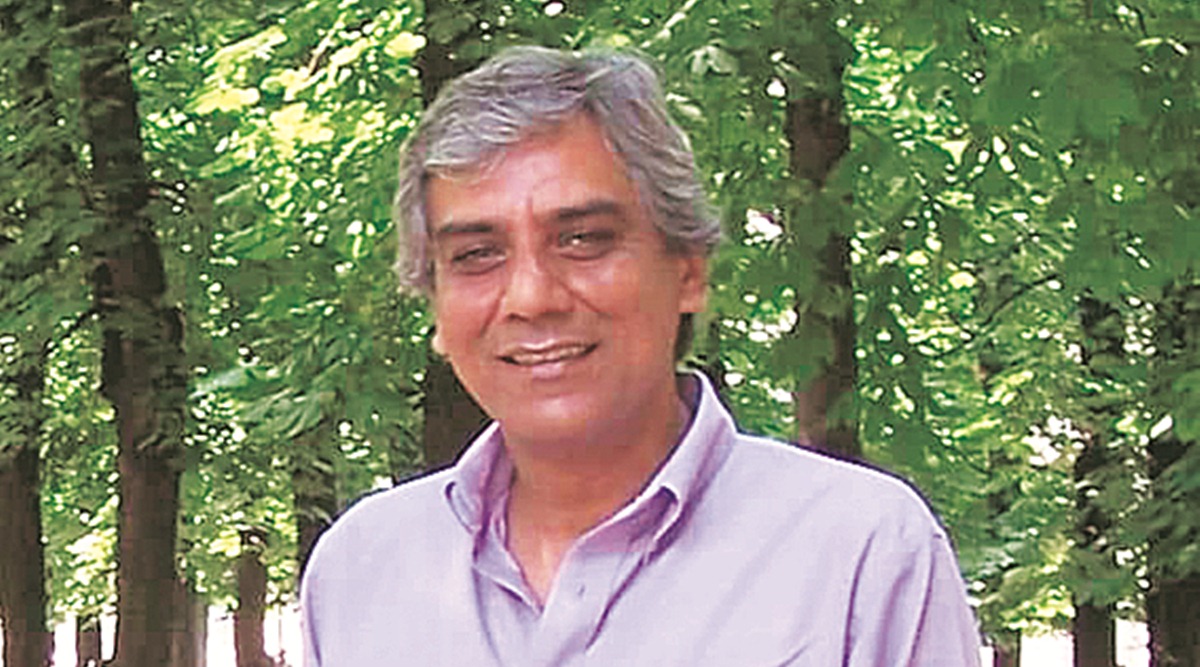 Former Head of the Department (HoD) of medieval Indian history at Delhi University, Professor Sunil Kumar (64).
Former Head of the Department (HoD) of medieval Indian history at Delhi University, Professor Sunil Kumar (64). Renowned historian and former Head of the Department (HoD) of medieval Indian history at Delhi University, Professor Sunil Kumar (64), died late Friday night at his South Delhi home after complaining of breathlessness. He had recently been diagnosed with COPD (chronic obstructive pulmonary disease).
Kumar is survived by his wife Anjali, daughter Shefali and son Sikandar. He resided in Saket.
“The COPD became worse in recent months because of pollution. Just two days ago, we had an appointment with his pulmonologist and his vitals were good. We even asked if he would require oxygen support, but the doctor said it wasn’t needed. We had fixed another appointment for Monday. So this was a bit sudden,” his son Sikandar Kumar (33) told The Indian Express.
“Around 1.30 am, he complained of breathlessness and suddenly collapsed. We took him to the hospital but it was too late.”
Born in Jaunpur, Uttar Pradesh, Kumar had moved to Delhi for the last two years of his schooling. He went on to do his BA in History from St Stephen’s College before moving to the US for MA (University of Bridgeport) and PhD (Duke University). He taught in St Stephen’s College, DU and SOAS (School of Oriental and African Studies) at different points in time.
Away from the traditional focus on the Mughal period in medieval Indian history, Kumar’s work was mainly on the Delhi Sultanate. Interestingly, his son Sikandar was named after Sikandar Lodi of the Lodi dynasty — the name chosen by his wife during a stroll through the Lodhi Gardens.
Kumar’s two books — ‘The Emergence of the Delhi Sultanate, 1192-1286’ and ‘The Present in Delhi’s Pasts’ — are said to be among the most significant contributions to the history of that period.
In the latter, which details the history of locations in the city, including the Qutub Minar and mosque, Hauz Rani and Saidulajab, Kumar’s love for the city is visible.
In the book, he writes how he cycled to these sites first in the 1970s with his wife, and later revisited them in the 1980s when he was a teacher, first at St Stephen’s College and then at DU’s history department.
“Many of the sites that I visited were in relatively obscure villages. I wondered if it was possible to interweave their histories in my classes, bring my subject more alive to a body of students falling fast asleep with a surfeit of lectures on Sultanate campaigns and Mughal revenue and administrative systems,” he wrote in the introduction to his book.
Kumar completed his term as HoD in September last year and was scheduled to retire in March. His colleague, Prabhu Mohapatra, said Kumar was “one of the finest historians”. “He was a great teacher but first and foremost he was a fine mind who interpreted history in a nuanced and novel way. His work on Delhi was layered and top rate. He spent a lot of time as HoD trying to imagine and reimagine the courses. There could be many disagreements with him but he always made decisions very democratically. It feels like the community has lost its clan head,” he said.
Students remember Kumar for speaking with a drawl and his insistence that they call him ‘Sunil’ instead of ‘sir’. But mostly, they remember him for being a dedicated teacher.
Pankaj Jha, history teacher at the Lady Shri Ram College, knew Kumar both as a teacher and friend. He did his MPhil and PhD under Kumar, and then went on to co-edit the Indian Economic & Social History Review journal with him, and others.
“He hasn’t written too many books, but he has left behind three generations of students whose work he invested in. He would tell me to never differentiate between a young scholar and an emeritus professor when it came to work. He could be very close to you and still not agree with you publicly. So many of us have learnt our lessons on integrity from him,” said Jha.
Kumar was athletic and played basketball regularly till around four years ago, said Jha.
Historian Sanjay Subrahmanyam, who knew him since the 1980s, wrote in a blog post Saturday how Kumar got the nickname ‘Saddy’.
“His nickname from youth was ‘Saddy’, because he allegedly had a sad face, but his personality was anything but sad. You could always count on him to read an essay or a book manuscript and give you pertinent comments,” he wrote on chapatimystery.com, a blogging website run by Manan Ahmed, Associate Professor of History at Columbia University.